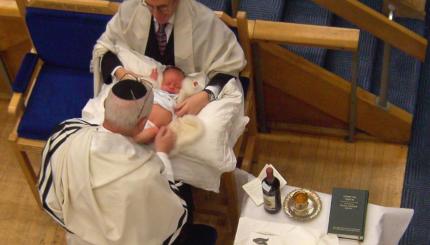Last night I went to my first taqwacore concert. Taqwacore is Muslim punk rock, and what that means to you is basically that I was in a room packed full of angry young Muslims, and I was, well, the only person looking like this. Which could have been a recipe for disaster at best case and ethnic cleansing at worst, if things had gone that way. Lo and behold, though, it was a crazy, jubilant, good-natured and even sort of flamboyant affair. I was nervous and skeptical on the walk to the Bowery Poetry Club, where the concert was being held. A serious-looking muscular dude with three colors of dyed hair, eyeliner, a heavy beard and a skirt was standing there. He nodded at me as I approached.
“You here for the show?” he asked.
After a moment of hesitation — did he mean that invitingly or threateningly? — I threw up my arms and said, as innocently as I could, “Yeah!”
His face split open into a toothy, wild grin. He turned his palms heavenward. “‘Mash Allah,” he said.
Which, I knew from all the books the movement was based on, meant Boruch Hashem.
The concert was actually only half a concert: the taqwacore band The Kominas played, and preceding that, Michael Muhammad Knight read. He has a new book out, Journey to the End of Islam, and as he took the stage, people shouted requests. It’s not that I’ve never heard requests shouted from the audience — I have, even for writers — but these weren’t requests for pieces to perform. They were for radical performance art. Mike chuckled into the microphone and shook his head: “Nah, I can’t. I didn’t bring any thumbtacks this time.”
He read a section in which he visits a sacred Muslim tomb, the burial site of a Muslim holy man. One way or another, he’s arrested, and quirkily ends up in the office of the curator of the tomb as the man shows Knight movies on his phone of the equivalent (in Pakistani rupees) of millions of dollars being unloaded, the temple’s profits from that year’s pilgrimage. Knight waxes philosophical about that, and about the unrestrained passion of thousands of pilgrims crammed into a small room — a scene that reminded me of nothing so much as visiting the tomb of Shimon Bar Yochai in Israel. Knight asks himself: does the sheer capitalist profit-making endeavor mean that the tomb isn’t sacred? Does the sheer number of people visiting mean that it is sacred? He doesn’t answer the question (although, sharing the experience, it does sound like he went through some sort of religious ecstasy there), but he does say this:
My mission is to make religion applicable to people, even if it’s not everything you want it to be.
There was one more thing Knight said that stuck with me, even though I’m going to paraphrase it. When the guards were swarming him at the tomb, nightsticks in hand and ready to bash him in, he said: “If Allah doesn’t want a guard to ram a stick up my a–, it will be as safe as if it were made of iron. And if Allah wants a guard to ram a stick up my a–, then no force on Earth will be able to stop it getting there.”
I turned to Mike’s and my editor and whispered: “That’s exactly the essence of everything I believe.”
I’ve been wanting to do a followup to the story I wrote about The Book of Jer3miah, the Mormon-LDS (fictional) web series, and the way it’s been taken by the rest of the LDS church. Although, curiously, while the original Taqwacores book has become a movement, swearing by its on sets of rules, Jer3miah‘s validity has been criticized by the simple question: Does telling new stories inspired by the Bible invalidate the originals or lessen their power? And then they dig deeper and ask the question: is making up stories — and twisting God’s will to fit your own narrative arc — even reverent?
This is what they came up with:
“Life isn’t reverent. If someone wants to tell a story for once that’s more like true life, it can’t always be reverent. We won’t LEARN anything. Think of Les Miserables, or The Grapes of Wrath. Also, remember that Jesus himself told parables to teach us through fiction.”
I know, they dropped the J-bomb — but replace that with Moses or Rebbe Nachman, and it totally makes sense. Just by living Jewishly/Islamically/religiously, we’re changing the tradition we grew up with, whether we follow it or rebel against it or a combination. And we’re putting our own interpretations on it. We just have to keep hoping — or, at the very least, I want to keep hoping — that I’m doing it the way God wants me to, until such time as God decides to speak up in words I can understand and reveal all the answers.
The rest of the night was fabulous, of course. I had to leave the Kominas set early so I could wake up with my kid — and I even missed them playing “Suicide Bomb the Gap” — but I’ll be back. And next time, I’m spiking my payos.


